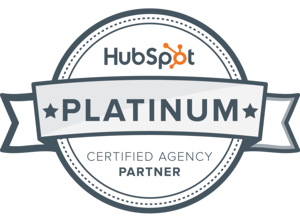 Digital marketing is all about using your online presence to generate as many customers and leads as possible. It's about standing apart from your competition so that more people want to work with your business and not theirs. It's about making connections with your audience and wowing them with your customer service, your online messaging, and your product/service.
Digital marketing is all about using your online presence to generate as many customers and leads as possible. It's about standing apart from your competition so that more people want to work with your business and not theirs. It's about making connections with your audience and wowing them with your customer service, your online messaging, and your product/service.
One really great way to wow your audience involves social listening.
What is social listening?
It's kind of like being really in tune with the gossip around your business. If someone is talking about your business, you know about it and you're there to put out any fires, or just to have a little chat with your customers.
Essentially, social listening is the practice of using monitoring software and online search to ensure that you find and respond to every online mention of your business.
Why is social listening important?
In the majority of instances when people mention your business online, they're not tagging it outright. This goes for when they're complaining about your business online, praising your business online, or simply mentioning the fact that they've made a purchase from your business or are considering doing so.
If they tag your business in the post, you'll be notified and can easily go in and respond to them, either working with them to improve their experience with your business, thanking them for their business, or simply having a conversation.
However, you shouldn't be ignoring all of the other users who are talking about your business, but just not tagging it. You still want to set up alerts and monitoring software that can catch and notify you of any indirect mentions of your business. This way you're still staying on top of all customers talking about you, you're starting conversations, and you're increasing brand loyalty.
 How can you use social listening for your business?
How can you use social listening for your business?
When done well, social listening can be an incredibly powerful way to reach your audience. Here are a few ways you can use this strategy to improve your overall digital marketing.
1. Monitor your business name.
You can set up Google Alerts or use a social listening software like Mention to set up monitoring on specific key terms. Your business name should absolutely be one. This way you don't miss a single mention of your brand.
You want to be able to reach out about any mention of your business whatsoever. The best way to go about this is to create an alert just for your business name.
When you're first getting started with social listening, you'll want to conduct an overall search to see if there are any conversations that you've been missing out on. Make sure you don't have any unhappy customers of whom you're not aware and find every opportunity to jump into a conversation with a current or potential customer.
Then you can set the alerts to notify you and your marketing team (or agency) in real time so that you can respond within a reasonable time frame.
2. Improve your customer service game.
If you're getting alerts about unhappy customers in real time, you're able to immediately address them, resolve any issues, and turn their bad experience around. When people mention brands on platforms like Twitter, they expect to hear back from your business relatively quickly.
When you have your brand mentions turned on, you're able to discover and respond to issues quickly. People love when a business is on top of their mentions, and when you're also being customer service-centric in the process, you're creating a serious wow factor with your audience.
3. Marketing campaigns.
Create a branded hashtag for your business or for a campaign that you run. Use that hashtag throughout your marketing. Monitor the hashtag so that you can see if your audience is also using it, and you can interact with any posts that include the hashtag.
These are great ways to increase the amount of user-generated content your business has to share and are another powerful way to interact directly with your audience. Getting your audience to engage with your marketing hashtag helps with social proof and brand awareness.
4. Competitor analysis.
You can use your social listening tools to also keep an eye on your competitors. What platforms are they using? How often are they using them? Are they monitoring their own business name for mentions? If not, how can your business capitalize on a bad experience one of their customers had?
Creating alerts for mentions of your biggest competitors can also be a good idea. If people see that your company is much more attentive than your competition, it helps to make you stand out and makes potential customers want to work with you rather than another business.
5. Find influencers.
By monitoring conversations around your industry, you can easily find influencers and popular accounts that share relevant content. It may be a good idea to partner with these people, or at the very least, follow and interact with them.
Influencer marketing can be very successful as it's another type of social proof or word of mouth marketing. If you find an influencer with a large following of your target audience, partnering with them and offering them a trial or a free product or service in exchange for a few social media posts can be a great way to increase brand awareness with their followers.
If you're interested in learning more about how social listening could work for your business, contact us. We'd love to sit down with you and make sure you're not missing any conversations or opportunities for sales in social media.
Written By: Doug Milnor


